- Learning time
- 60 minutes
- First play time
- 150 minutes
Dune: Imperium
Designed by: Paul Dennen
Inspired by the Frank Herbert novel Dune and its sequels, Dune: Imperium pitches the players into that universe, as warring factions sparring across the galaxy.
Each player has a pair of agents at their disposal, and the board shows the various destinations they can be assigned to during each round and what they do there – with most spaces having only enough room for a single agent. Once all agents have been assigned and done their jobs, they return to the players and a new round begins. But before that, there’s a round of combat, and broadly speaking most of the destinations on the board are about helping you prepare for, engage with, and hopefully win the combat in question. However, your agents aren’t only beholden to what destinations are still available to them when your turn arrives – where they go also depends on what cards you have.
Let’s back up to the start of the game. As well as your agents, you also have a deck of ten cards. To send an agent to a destination on the board, you must play a card with a matching symbol on it: there are several such symbols, some cards only show one but many give you choices. You’ll have a hand of five cards to play and only two agents to assign, so you should have some flexibility about where they go. When a card is played it’s discarded; when you run out of cards to draw from your discarded cards are shuffled and become your draw deck again – but your deck is steadily getting bigger and better, because cards you didn’t use to assign agents can be used in other ways, such as strengthening your status in combat, or – and this is the juice – buying more cards for your deck; that give you more flexibility, more money, better actions.
Agents assigned to the board, meanwhile, can be harvesting Dune: Imperium’s precious resources of water and spice. These can be spent at some locations to get you cash, to launch troops into the combat zone (represented by cubes) or throw them into battle. You can even assign an agent to get you a temporary third agent for a single round, or a permanent addition for the rest of the game.
So, combat is fairly straightforward. At the beginning of every round a card is flipped to show what the winner (and runners-up) of combat can claim: such as advancements on the board, money, or points. Dune: Imperium only continues until someone hits the winning ten point mark, so a single point can be critical. Players simply compare the amount of troops they have in the combat zone to determine the winner, but! Each player has the option of adding cards or advancements to boost their strength, meaning occasionally there are surprise results! You can perhaps win the game without ever winning combat, but it would require some rather canny play and, one imagines, a few runners-up placings to harvest rewards cheaply.
A player hitting ten points triggers the end of the game, with the current round played to its conclusion. It is possible however that some players will have secret point-scoring cards that may shunt them into the lead after the final battle!
The guru's verdict
-
Take That!
Take That!
Plenty - every round is a battle and even if you sit one out - as you no doubt will - players are getting in each others way all over the board.
-
Fidget Factor!
Fidget Factor!
Moderate - familiarity, as always, speeds up play considerably, but there'll always be turns where you or someone else has their plans harpooned by someone taking the spot you really needed, and a quick rejig is needed. But your hand of cards does a reasonable job of giving you flexibility without drowning you in options.
-
Brain Burn!
Brain Burn!
Moderate. It's not a high-fiving family affair, but neither is it as opaque as it might sound at first glance, and older kids may really enjoy what Imperium offers, especially after a couple of plays when the fog of learning has fully cleared.
-
Again Again!
Again Again!
There's a lot of variety in the box: every player colour (or faction) is distinct from the next, with their own special ability, and the fall of the cards is more than enough to keep each visit feeling distinct.

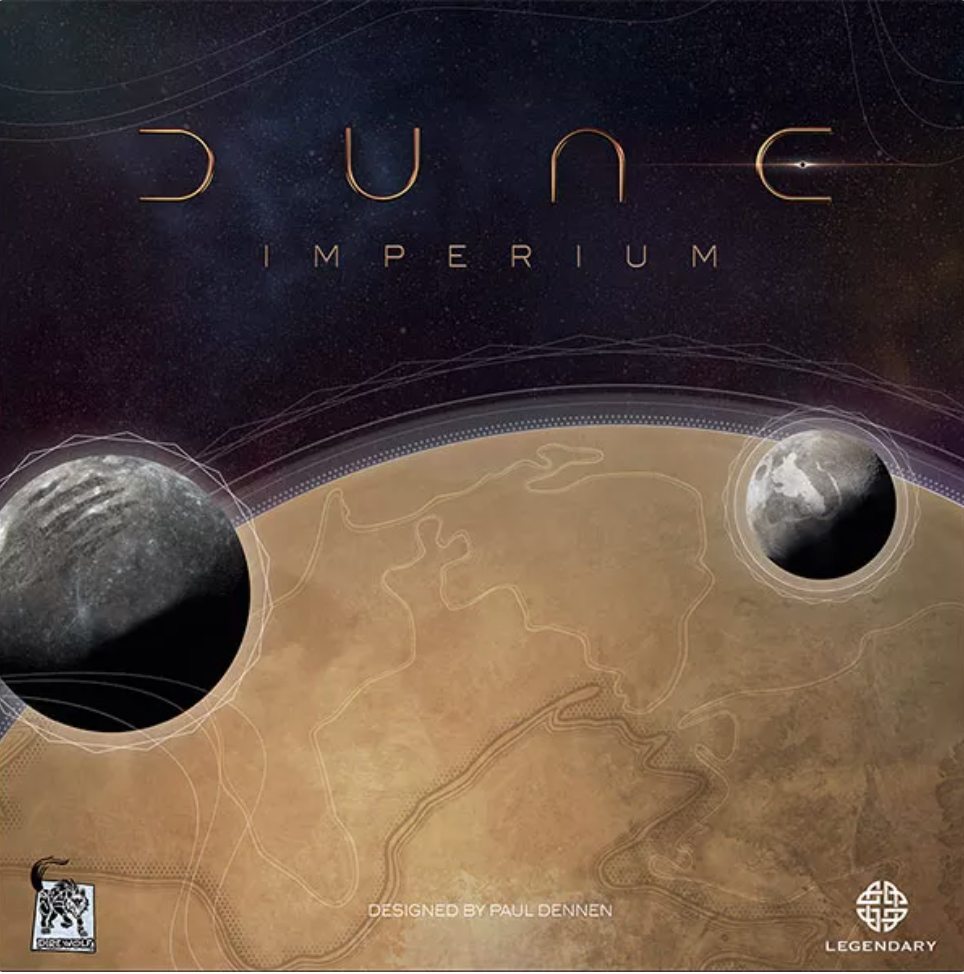
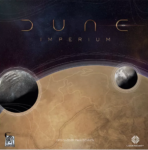
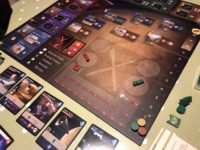
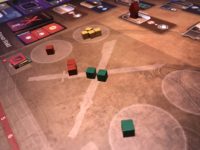
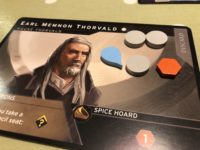

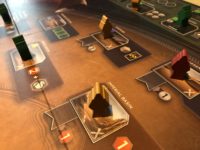
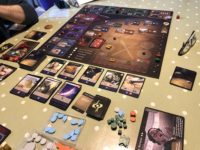


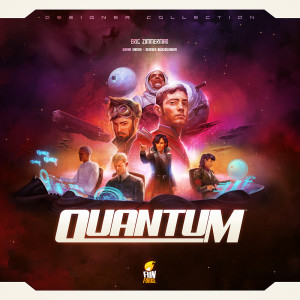
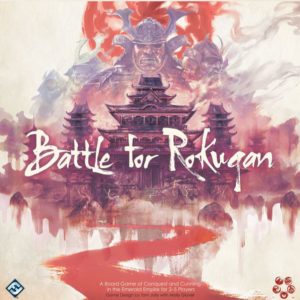
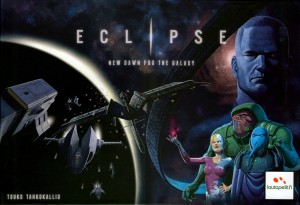
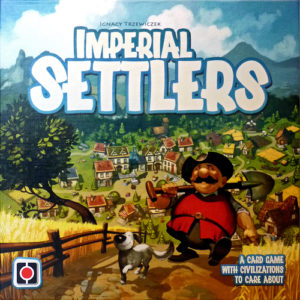
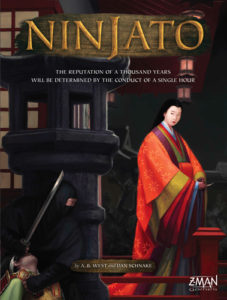
Sam says
I've never read Dune but I'm usually amenable to a space-themed game and fortunately Dune: Imperium didn't let me down. It's perhaps not as immersive as something like Eclipse, not as story-driven as my favourite Xia or as cut-throat as Quantum, but it's probably more accessible than all of them and has a real dynamism in how it plays, with players interacting both directly in combat and indirectly away from it. The cards do a really good job of both lending the game a sense of momentum and also preventing lopsided runaway leaders. Although like a lot of combative games, the players are asked to police themselves, and there's something to be said for a strategy of staying behind the leader on points but trying to avoid leading the pack yourself - it makes you a target. There's probably a lot to be said about how the game ties in with Herbert's narratives as well, but I think it's no little compliment to say I really enjoy this game whilst knowing nothing about it!